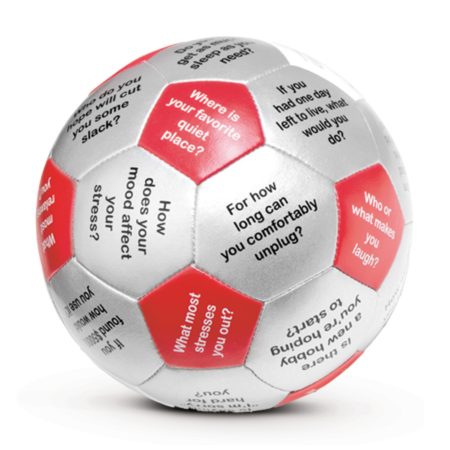Tackling Stress Management at Work
Life before stress looks like unadulterated happiness — laughter, dancing, and ear-to-ear smiles. Life after stress looks like the parents in the image above, who are watching the kids at play. To the extent that happiness and productivity are linked, we need to do more about having Stress Management Conversations at Work!
Stress at work
Work and stress seem to have a symbiotic relationship — work causing stress on one hand, and stress impeding work on the other. In addition to inhibiting productivity, it affects our relationships, impairs sleep, and may even lead to addiction. In order to create a healthy workforce, companies must do everything they can to eradicate stress.
Unfortunately, most of the stress management literature I’ve read that lists “Top 10” ways to minimize stress, focuses on exercise, sleep, humor, hobbies, etc. These tips, like the squeeze balls that frequently accompany them, are simply not enough. While these playful tools might establish a more play-friendly environment and help individuals let off a little steam, which is certainly worthwhile, they’re unlikely to get to the root of the problem.
To tackle Stress Management at Work, organizations must go a step further and equip managers, team leaders and colleagues to initiate honest and open conversations about the specific situations that are causing anxiety.
Stress Management through great conversation!

The Stress Management Thumball, featuring 32 discussion topics relating to stress, is just the tool to make such rich and important conversations easier to facilitate. About half of the discussion questions focus on sources of stress. Each prompts is open-ended, so that respondents can choose whether or not to share more personal information. Prompts are also thoughtfully crafted to allow colleagues to address common workplace challenges with sensitivity and respect.
Sources of stress
Questions that uncover the causes of stress might include:
- Which “urgent” tasks most distract you from important ones?
- Is saying “I’m sorry” hard for you?
- Is your space usually organized or cluttered? Do you care?
- What’s your most stressful month of the year? Why?
- For how long can you comfortably unplug?
- What work task would you most like to avoid?
- Who do you hope will cut you some slack?
- How does your mood affect your stress?
- Is trying something new more energizing or stressful?
- What are your most dreaded household chores?
- When you’re busy, what’s first to get cut from your routine?
- Do you know when to say “NO”?
- What most relaxes you?
- Do you get as much sleep as you need?
Alleviating stress
Beyond identifying the situations that promote stress at work, a second series of questions can help individuals reflect on which tips and techniques might help them manage stress. That is, rather than telling me, “You need to exercise more,” I’d rather be asked, “What activities cause you to lose track of time?” After all, when folks participate in the development of solutions, they are more likely to adhere to them. Questions to help people find their own stress management techniques might include:
- Where is your favorite “quiet” place?
- If you found $5000, how would you use it?
- What activities cause you to lose track of time?
- What forms of exercise are most enjoyable?
- Is there a new hobby you’re hoping to start?
- If you took a “1-minute mental vacation,” where would you go?
- If you had one day left to live, what would you do?
- When stressed do you prefer company or solitude?
- How would you use two extra hours per day?
- When I’m stressed I __________.
- Who or what makes you laugh?
- What’s your favorite time waster?
- What are your favorite comfort foods?
- How would you like to change your diet?
These questions help people to discover the types of activities they hope to make time for, lifestyle changes they aspire to, and ways to calm their own nerves.
Find your smiles
Once we start talking about and addressing our stress triggers, I hope we’ll look more like smiling, dancing children, and less like scowling adults.
Click here for more Stress Management Activities.

